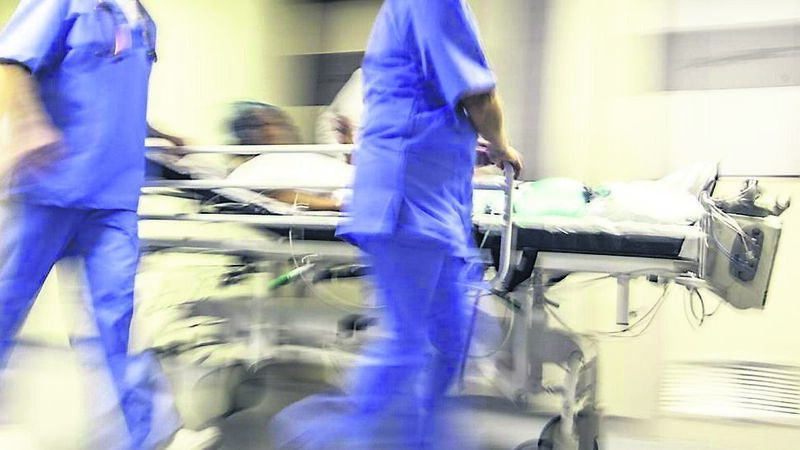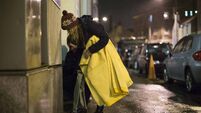Cork Views: We must tax capital and wealth to fund services

Areas like health and housing need strong investment - and the money needs to be spent more wisely
Irish people will have noticed that whether it’s a shortage of housing, hospital beds, funding for schools, disability services, or mental health, everything we pay taxes for, there are always critical shortage crises.
Temporary burgeoning tax receipts from multi-nationals give some temporary relief, but will run down, particularly arising from Trump’s tariff moves.
Those in employment pay enough tax. For a country at full employment, with people working hard, several of the untapped big pots of tax revenue on capital and wealth will have to be tapped to sustain people and their children. Government glossy documents on housing and health are only make-believe otherwise.
In 2024, Ireland registered a government surplus of €9 billion, when €14 billion from the Apple European Court of Justice tax ruling was deducted. That was before Trump’s U.S tariffs and includes the continuing buoyant tax receipts from multi-nationals. The surplus was stashed by government in to the Future Ireland Fund for infrastructure needs.
The Central Bank last month warned of the negative effects of Trump’s tariffs on the economy, the prospect of a sharp reduction in tax receipts from U.S multi-nationals, and losing its windfall tax revenue up to €17 billion. Within a few years, Ireland could be back to a government deficit, requiring austerity, which means reduced public spending and increased taxes on those in employment.
Of course, this all depends on the results of tariff deals between the EU and U.S, whether chemicals and semiconductors are included in the overall 20% tariffs, and what the impact on multi-nationals will be.
But, it seems obvious Ireland can’t allow its people to become sitting ducks to these risks to tax receipts. The population here is now 5.3 million, having grown by a staggering 98,700 in 2024.
People will have noticed government warnings on tighter public spending next year, given the fear of falling multinational tax receipts, and will wonder now, how, with healthy government surpluses in 2022, 2023 and 2024, the housing situation has worsened, hospital waiting lists are as bad, schools are asking parents for more contributions, and the government wants to increase student fees.
Over 235,000 people are in need of housing at the moment with over 15,000 in emergency accommodation; 717,000 are on hospital waiting lists. We have a public/private mix in health care, those with private health insurance have a separate route to care and that’s why nearly half of people purchase it. This proportion is falling, given the sharp increases in premiums, currently averaging €1,685 per person per annum.
It’s a head-scratcher for so many that, even with our economic success, full employment and government surpluses, there’s a shortage of all public services, to say nothing of the cost of living.
The government will point to the risks of falling tax revenues from tariffs for next year. Of course, the worst case scenario of tariffs may not happen, multi-national receipts may still be strong and we could have reasonable surpluses up to 2030. But even in the last three years, when there were no tariffs and large government surpluses, housing, health, and other services have not improved.
It’s obvious the tariff problem is risky to tax receipts and we have to hope for the very best outcome. But,it’s even more obvious that despite large tax and windfall tax revenues from multi-nationals over the years, the Irish state still did not make progress on key areas which make life worth living: a home; decent health care; affordable education; poverty reduction; publicly provided childcare; more investment in leaking water pipes, and a whole raft of other areas.
The obvious conclusion is Ireland needs more taxes from other areas, in addition to multi-nationals, other than taxes on work, which, in order to provide for people’s needs, so the state could plan for the medium to long-term in housing, health, etc, rather than being hostages to fortune on dividing out what tax revenue is available in the short-term, totally at the mercy of the global economy.
The Commission on Taxation recognises this need. It recommended increased taxes on wealth and capital, including property, land, other assets, capital acquisitions tax and capital gains taxes. Crucially, these are not payroll taxes. These billions of euros per annum in untapped tax revenue would be levied progressively, meaning those with greater wealth pay more, so as not to hurt pay packets.
We can’t rely on increased out-of-pocket payments for health insurance, elder care, child care, education, and other vital areas going forward. Most families are double income earners, paying high mortgages or rents, and childcare. The burden must shift to more efficient public provision, and be funded from increased taxes on wealth and capital.
Public money must still be spent wisely and efficiently. For example, a well-planned social health insurance-funded health system could provide universal, free health care and elder care for all, funded by social insurance contributions by employers and a modest employee contribution, which would make health insurance unnecessary for most people. This happens in Germany and many other countries.
This still means innovation must be fostered in the economy. In addition, public spending scandals like the national children’s hospital must be avoided in a new, strategic way, with proper oversight in tightly-managed fashion, which is planned and sustainable, supported by new tax revenues which can be relied on.
The lack of planning and practices of successive governments akin to ‘we’ll just see how much we have next year’ for housing or health, has to end.
This approach is needed to sustain people, to prevent them being left ‘running on empty’, becoming disaffected, and turning their anger on migrants and other groups, which only creates racism and hate. A more balanced, fair, and sustainable society, which sustains hard-working people, is necessary and achievable.







 App?
App?







